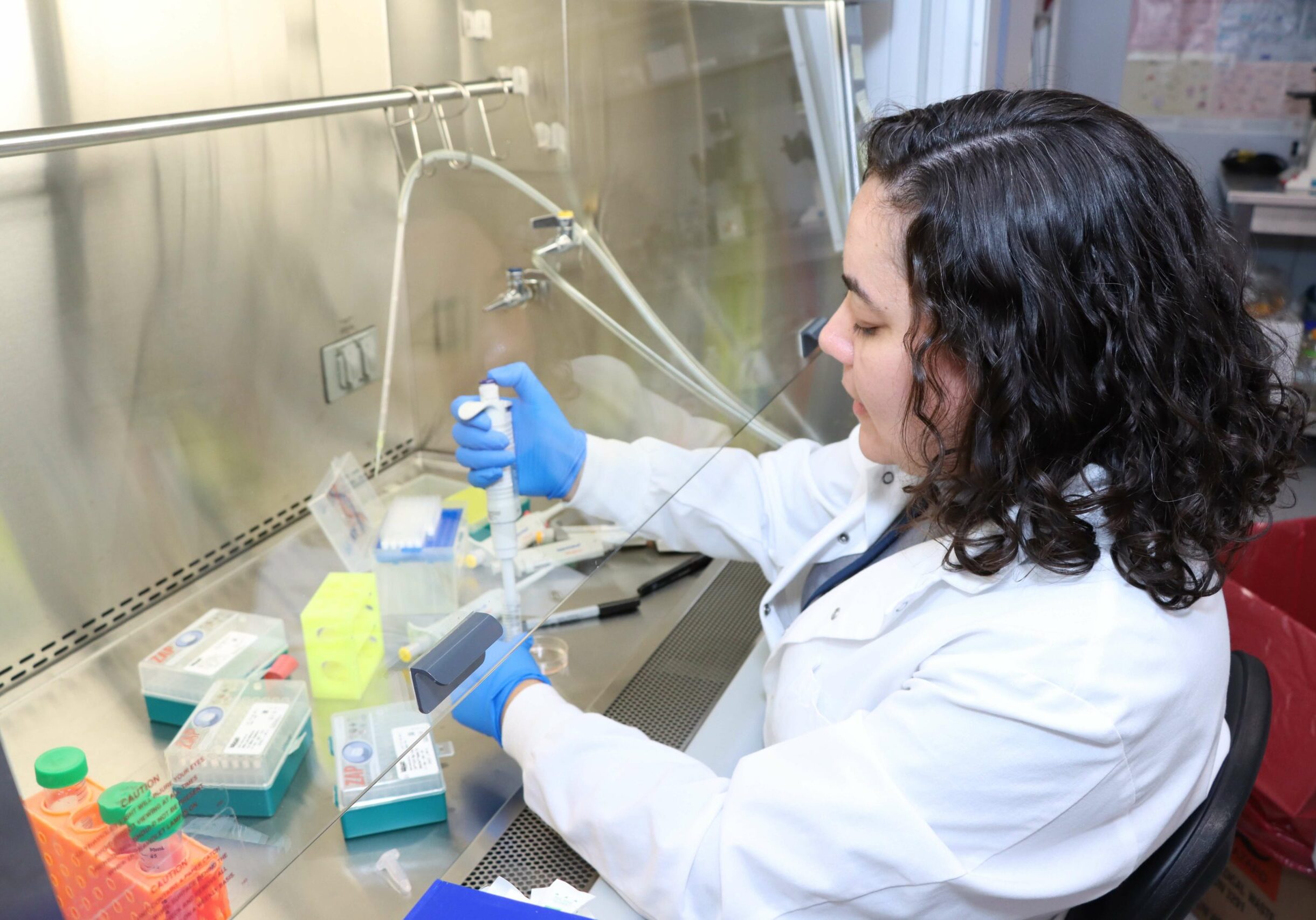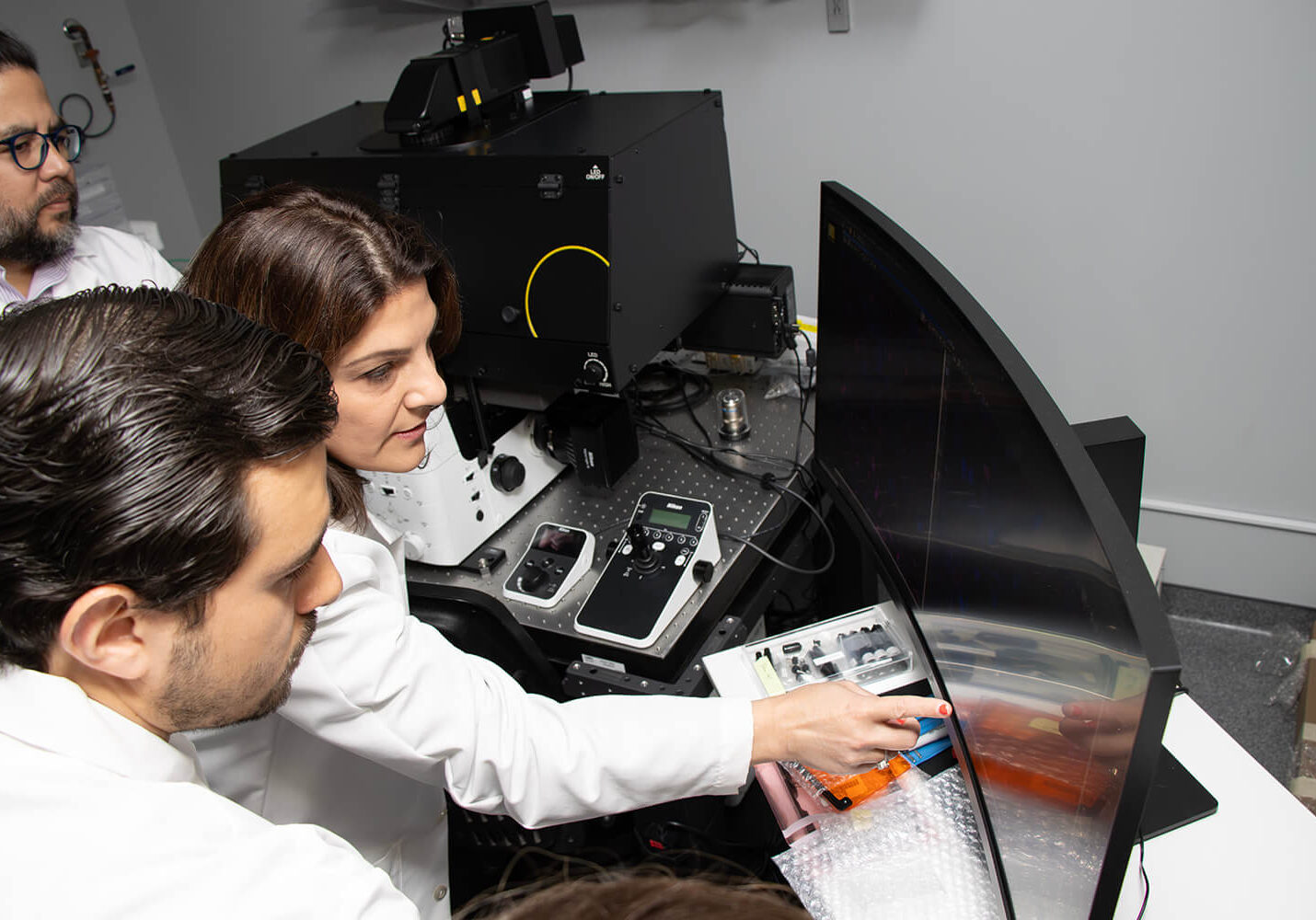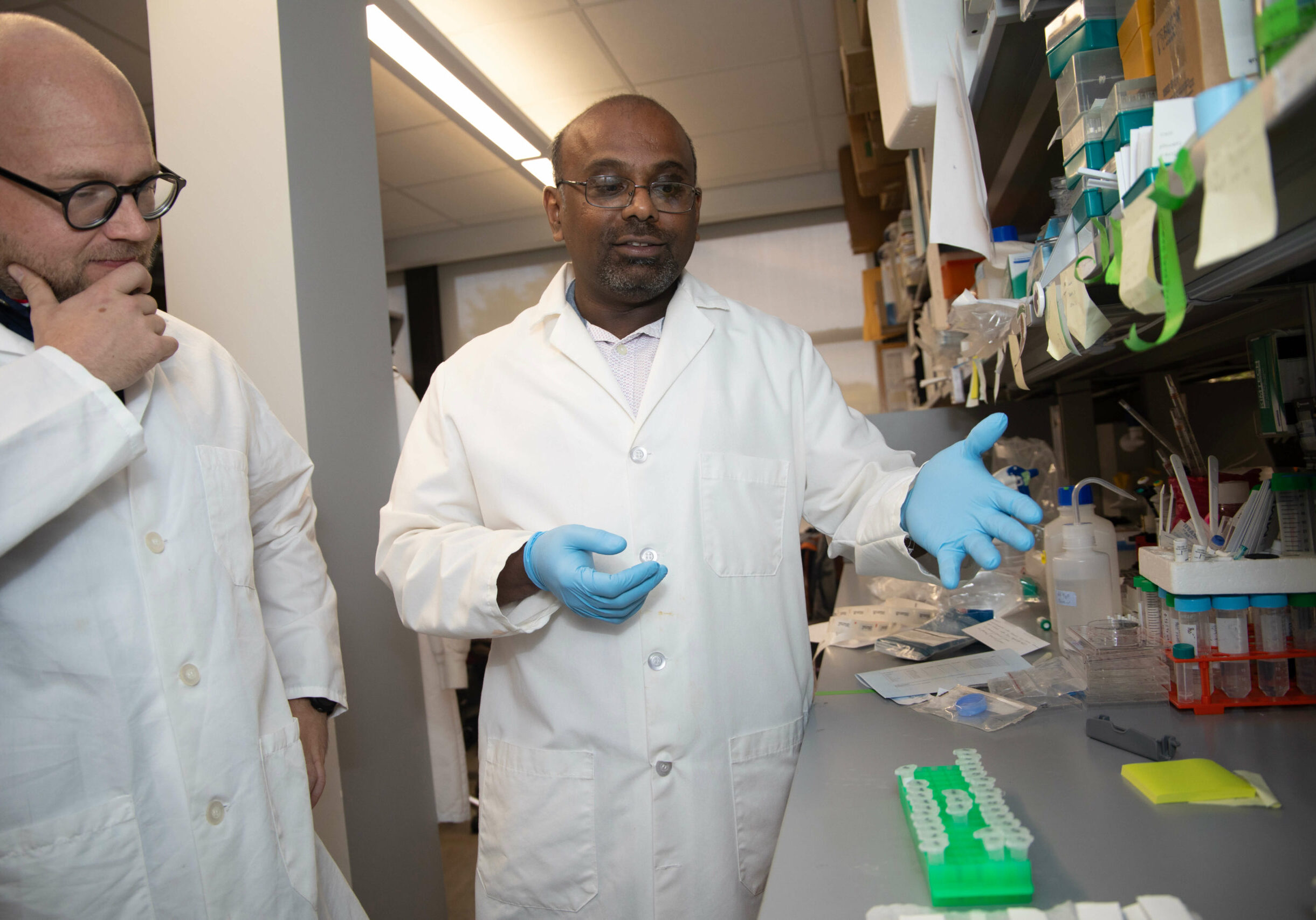RASopathy Disorders
Phosphatase dependent and independent functions of SHP2
Lupus
Protein Tyrosine Phosphatases (PTPs)
Autism

Autism affects one out of every 36 children. Dr. Kontaridis’ lab is focused on understanding the genetics of autism. She is evaluating the genetic sequences of all family members with generational cases of autism to try to identify novel familial causes of this disorder. Already, her work has identified a link between congenital heart disease and autism and is working to identify therapeutic targets for intervention early. In addition, she is working to assess phenotype:genotype correlations for incidence of autism in the upstate NY area. In partnership with several autism foundations, her lab is working to conduct a study to identify a link between genetic, environmental, and socioeconomic determinants to the development of autism.
Diabetes/Obesity
Characterized by diastolic dysfunction, myocardial stiffness, and preserved systolic function, HFpEF represents a significant and increasing portion of heart failure cases. Despite its prevalence, the molecular mechanisms underlying HFpEF remain poorly understood, and effective therapeutic targets are lacking. The Kontaridis lab is interested in a novel phosphatase that may be involved in the regulation of cardiac metabolism. The lab is focused on determining a role for phosphatases in HFpEF. Specifically, PTP1B is a critical protein tyrosine phosphatase involved in a variety of cellular signaling pathways, including metabolism, inflammation, and cardiovascular function. Importantly, Dr. Kontaridis’ lab has shown that PTP1B plays a crucial role in high fat diet (HFD)-induced cardiac hypertrophy and fibrosis, key features of HFpEF. The current work in the lab, therefore, is focused on whether PTP1B is a nodal enzyme required for the regulation of HFpEF through aberrant regulation of downstream signaling. In addition to PTP1B, the lab is also interested in assessing the function of another novel phosphatase, PGP, in the heart and in metabolic signaling.

Channelopathies

The Kontaridis lab is also working to delineate the molecular and cellular underpinnings of genetically induced cardiac channelopathies, including short QT (SQT), long QT (LQT), and Brugada syndromes, rare congenital heart disorders that cause life-threatening cardiac arrhythmias. Her studies encompass studying novel gene mutations that gives rise to disparate arrhythmias, including in the TRPM4, calcium, potassium, sodium and/or ryanodine receptor channels.
Heart Failure, Inflammation, and Fibrosis
The Kontaridis lab is also deciphering the mechanisms that affect cardiac fibrosis, induce heart failure and/or cardiometabolic disorders. Dr. Kontaridis discovered that the Rho GTPase RhoA, an enzyme regulated in part by SHP2, is involved in transitioning compensatory cardiac hypertrophy to heart failure. Moreover, it is involved in fibrosis, making RhoA and its downstream effectors attractive targets for therapeutic approaches in treating cardiac disease. Our projects on RhoA involve elucidating signaling pathways involved in fibrosis, inflammation, and in the onset of end-stage heart failure.


Lab Members












Chase Kessinger, Ph.D.
Chase Kessinger, Ph.D.





